Two days before Christmas last month I went to a Walmart store in an unfamiliar neighborhood in hopes of finding Queen’s Greatest Hits for my son (“We Will Rock You” had become his anthem). According to Walmart’s website, it was in stock at this particular store in an area that I did not know. In the past few years, my shopping has mostly been done on-line – no lines, no cranky people, but also no interesting experiences.
This particular Walmart was chaos contained in 50,000 square feet. The parking lot itself was a challenge with people zooming all over, all trying to get the best spot; there was a truck sitting in one of the main lanes not moving, possibly not running, while everyone tried to get around or figure out how to back up. I was driving our big truck because I had to get hay for our animals. I already felt out of place maneuvering this huge vehicle and trying to squeeze myself into a spot at the very end of the lot where I could hopefully get back out again without damaging other cars.
“Get in and get out,” I told myself walking into the store. I sucked in breath as I saw the madness of Walmart near Christmas. The register lines were endless with people of every nationality looking frustrated and stressed, the displays at the front had been damaged from so many people going by, and the chorus of children crying drowned out the bad Christmas music over the speakers.
“Music section, music section,” I directed myself through the throngs of assorted disgruntled shoppers. I had no idea where that would be. My luck usually dictates that it would somewhere completely across the store and I was not disappointed: it was in the very back corner. I finally reached it only to find the CDs in absolutely no recognizable order; if one happened to be in the right alphabetical spot, it was only by chance. And, as I guessed, Queen was nowhere to be found. In fact, there was were nothing in the Q section that started with such a letter. I halfheartedly looked through the surrounding area and the closest I found to classic rock was Poison.
An overweight and bored employee attempting to put CDs in their rightful places asked me if I needed help.”Have you seen any Queen around here?” I asked doubtfully. He laughed as though I asked him if there was a pot of gold at the end of aisle six. I told him that Walmart’s website said that it was in-stock here. This made him laugh harder. He then went on to tell me about an outside website where I could buy an entire MP3 album for $1.50 instead of playing $10 at iTunes. I told him thanks, noted that there was no employee loyalty lurking here, then went to get a gallon of milk so I could get out of this place.
Throughout my adventure in the store the loudspeaker kept announcing that “Giovanni has lost his mom” and would she please come to the front to find him. At first, I was concerned for both parties, being a mom myself I would be distraught if I lost my kid. After the fifth announcement for poor old Giovanni, I started to think that maybe his mom didn’t want to find him. Finding the milk, I politely said “excuse me” to another shopper who was staring into the case. I opened it, got my milk, then held it open for her as I assumed she was getting some too. She looked at me, rolled her eyes, and kept going down the aisle. “OOOkay,” I said to myself, resolving to leave this place and not linger another moment.
I walked up to the registers to find that the chaos had settled somewhat. I found a line that looked promising and watched as a mother and a teenage daughter argued over going back to get something. The girl’s attitude suggested that she was not doing it, but the mother’s bigger attitude prevailed, and the girl went to get whatever missing item they forgot. I noticed that they were next in line but the woman did not look like she was willing to let anyone past, even if that meant she held up the line for the next half hour. “Next line,” I said to myself. I went over one register and found a person trying to buy something with no price and attempting to argue with the cashier over the real price of the item in broken English with no success. Another woman in back of me kept sighing very loudly and saying things to herself about the scene.
This went on for another five minutes. I noticed that Giovanni had finally been reunited with his mom, who had four other children with her and looked like she didn’t care if she had ever found him again. Finally, another cashier opened up and I dashed for it only to find another woman trying to get there faster. As usual, I heeded to the other shopper, not finding it worth the effort to argue over who was there first. To my surprise, she told me that I got there first and to go ahead. “Really? Thanks!” I said looking over at the line where the teenager had still not returned and the people behind the mother getting thoroughly pissed off while the mother looked completely unperturbed, if anything she was seeking a challenger to fight.
The cashier was an older African American woman who was very friendly and helpful, and didn’t seem to mind the Christmas craziness. I paid for my milk and got out of there as fast as I could. The line with the mother and absent teenage girl was starting to get very heated, eyes were starting to bulge and chests heave. “Thank the lord!” I said to myself, dashing to the truck only to find three carts piled up behind it. I got them lined up and moved them to the overflowing cart return, not seeing an employee in sight who would be taking them any time soon.
Getting in my truck, without the CD that I originally sought, I watched as the public transit whizz by, heard horns honking in the distance, and just wanted to leave this store and this place and never come back. I wanted to go home to our very quiet and nature laden neighborhood, where I don’t see another house next to mine, where three cars constitutes a traffic jam, and where animals are more prevalent than people. And I did, after squeezing through the parking lot where the same truck from earlier had not moved; I drove forty-five minutes north east of there, and breathed in the country air, and was glad for it.
Visiting this Walmart in this an unfamiliar neighborhood was good for me, however, because it truly made me appreciate what I have and where I live. I unloaded the hay and was glad for the sweat and effort that it took. I realized that it would be very hard for me to live in an area anywhere near a Walmart, even though I have lived in suburban and somewhat urban areas in the past. We worked hard to get here and it suits me; it would be difficult to live any other place.
It also made me realize that living on five acres in the country is my attempt to hide from reality. In this case, I was trying to hid from Christmas insanity, and it showed me why I should shop ahead and on-line where I deal with no people. But what are the  consequences of that? Besides getting to maintain my sanity, am I depriving my children and myself of seeing other ways of life? Will my kids be unable to handle a chaotic situation surrounded by unfamiliar people one day because I avoid these places?
consequences of that? Besides getting to maintain my sanity, am I depriving my children and myself of seeing other ways of life? Will my kids be unable to handle a chaotic situation surrounded by unfamiliar people one day because I avoid these places?
In truth, I barely take them to any retail store beyond the grocery store because I don’t want to hear about all the things they want. We often avoid retail entirely so they can’t see and don’t know what they don’t have. However, I do think that my way of life “in the country” is a shield from other realities; and I have found that I am not the only one. Most of the people near us live out here for a reason: for some it is their retirement and they want to “get away from it all;” for others, it is wanting their kids to grow up in a place where they can get dirty, and some have just lived here their entire lives and are content with that way of life. Either way, I’ll take my isolation, be glad that I am not Giovanni or his mom, and next year, shop ahead on-line, at least near Christmas time!
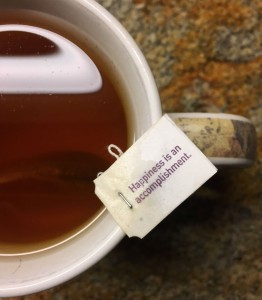 What job would make me happy? What material item can? How much more money do I need to find happiness?
What job would make me happy? What material item can? How much more money do I need to find happiness? eads to happiness, we must practice it all the time.
eads to happiness, we must practice it all the time. In my ripe old age of somewhere in my fourth decade, I’ve come across three phrases that can make a world of difference when dealing with your children, friends, family, argumentative adults, anyone. Lately, I’ve noticed the lack of these phrases coming from people of power (or those who think they have power), those who feel superior, or just people who feel owed (at any age). Regardless of who you are, consider these phrases and question when you last heard or said them. Here they are in no particular order:
In my ripe old age of somewhere in my fourth decade, I’ve come across three phrases that can make a world of difference when dealing with your children, friends, family, argumentative adults, anyone. Lately, I’ve noticed the lack of these phrases coming from people of power (or those who think they have power), those who feel superior, or just people who feel owed (at any age). Regardless of who you are, consider these phrases and question when you last heard or said them. Here they are in no particular order: relieved. This applies to situations with your kids or in a meeting, just assume the blame if it truly is your fault, remedy the problem, and move on. I’ve been in multiple situations lately where the same person doesn’t ever accept fault or blame, but instead turns it around and puts it on someone else. That not only makes everyone upset (and infuriates me), it also reveals that this person cannot be trusted because who knows who will be wrongly blamed next? It could be you; it could be me. It also seems to say that this person never does anything wrong, and how is that possible? We’re human, we make mistakes, own up to it, learn, and keep going. It’s that simple.
relieved. This applies to situations with your kids or in a meeting, just assume the blame if it truly is your fault, remedy the problem, and move on. I’ve been in multiple situations lately where the same person doesn’t ever accept fault or blame, but instead turns it around and puts it on someone else. That not only makes everyone upset (and infuriates me), it also reveals that this person cannot be trusted because who knows who will be wrongly blamed next? It could be you; it could be me. It also seems to say that this person never does anything wrong, and how is that possible? We’re human, we make mistakes, own up to it, learn, and keep going. It’s that simple. people like to be recognized for their work, and saying “thank you” (or even “thanks!”) is so easy. When my kids finally put their shoes away instead of kicking them off and leaving them on the floor, I say thank you. If someone goes out of his way and holds the door open, tells you that your gas cap is not screwed on, or whatever small token it might be, just say “thank you.” Express your gratitude for those big or small things and everyone wins.
people like to be recognized for their work, and saying “thank you” (or even “thanks!”) is so easy. When my kids finally put their shoes away instead of kicking them off and leaving them on the floor, I say thank you. If someone goes out of his way and holds the door open, tells you that your gas cap is not screwed on, or whatever small token it might be, just say “thank you.” Express your gratitude for those big or small things and everyone wins. )
) to think, “now what?” Many of us have experienced this thought. We had a problem or a challenge, set a goal, succeed, then felt a little…empty, sad, or possibly depressed.
to think, “now what?” Many of us have experienced this thought. We had a problem or a challenge, set a goal, succeed, then felt a little…empty, sad, or possibly depressed. t it isn’t always helpful think about other people and their bigger problems because it makes me feel petty and small about my own (i.e. my “first world” problems). But, good or bad, we all have problems; that is the nature of life. And maybe giving ourselves the perspective of knowing that other people have faced problems, similar or even worse, and they got through them, therefore, I can too. It might just be the little lift we need to feel better.
t it isn’t always helpful think about other people and their bigger problems because it makes me feel petty and small about my own (i.e. my “first world” problems). But, good or bad, we all have problems; that is the nature of life. And maybe giving ourselves the perspective of knowing that other people have faced problems, similar or even worse, and they got through them, therefore, I can too. It might just be the little lift we need to feel better. much more. Most of the kids were very interested, watching with gleaming eyes. Then we got to the part which the fireman boasted was the most fun – he opened the door to the passenger side of the truck revealing the “Captain’s seat.” He explained that this is a very important seat, and said that all of the cool tools and technology were used in that spot. Then he asked, “would you like to sit in this seat?” Yes!” they all cried excitedly.
much more. Most of the kids were very interested, watching with gleaming eyes. Then we got to the part which the fireman boasted was the most fun – he opened the door to the passenger side of the truck revealing the “Captain’s seat.” He explained that this is a very important seat, and said that all of the cool tools and technology were used in that spot. Then he asked, “would you like to sit in this seat?” Yes!” they all cried excitedly.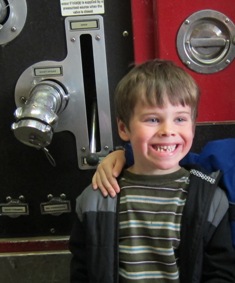 worst part was that the kids knew exactly what to do – get in the seat, turn to the camera, fake smile, picture taken, get down for the next kid. Only one boy out in the whole group insisted on sitting in the seat and asking questions about everything around him, and he was quickly encouraged to “get down so someone else can have a turn!” A turn at what? I thought. The kids will see their pictures and probably like them, and being five years old they probably won’t remember the field trip too much, but how much more valuable would it have been for them and their little working brains to sit in the Captain’s seat and pretend they really were the captain of the fire truck? Something could have sparked inside one of them as they explored and examined all of the new things they saw there. But instead, we take a picture of the moment and we rush them off for next kid’s photo opp.
worst part was that the kids knew exactly what to do – get in the seat, turn to the camera, fake smile, picture taken, get down for the next kid. Only one boy out in the whole group insisted on sitting in the seat and asking questions about everything around him, and he was quickly encouraged to “get down so someone else can have a turn!” A turn at what? I thought. The kids will see their pictures and probably like them, and being five years old they probably won’t remember the field trip too much, but how much more valuable would it have been for them and their little working brains to sit in the Captain’s seat and pretend they really were the captain of the fire truck? Something could have sparked inside one of them as they explored and examined all of the new things they saw there. But instead, we take a picture of the moment and we rush them off for next kid’s photo opp.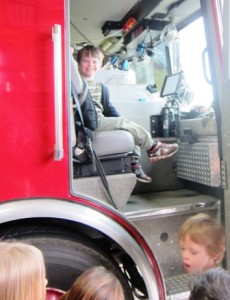
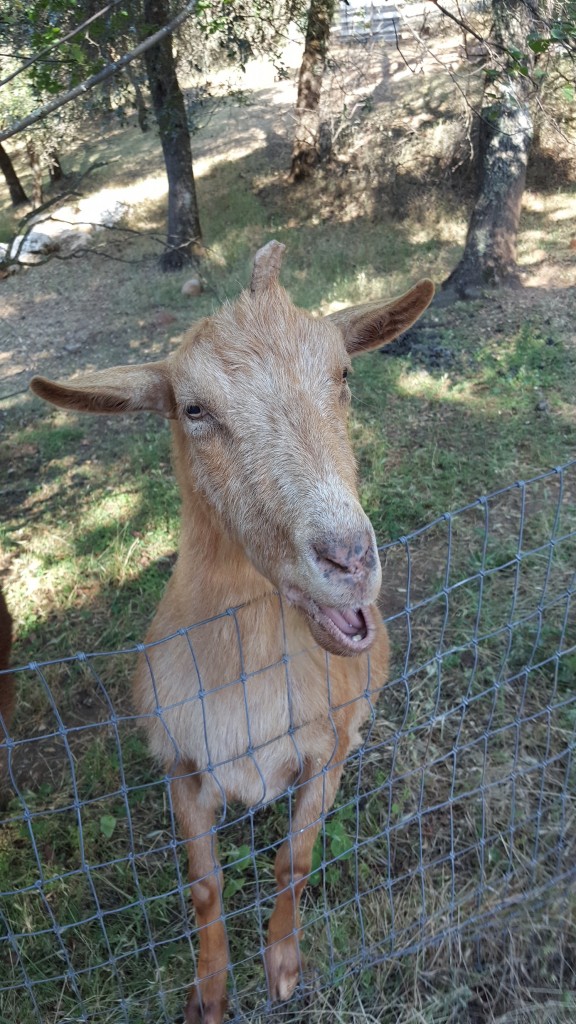

 r pregnancy books before I gave birth to my daughter. My husband and I took the classes on delivery (which I found scary instead of comforting). I went to the breastfeeding class. I talked to mothers with both young and older children. Few, if any, of these sources could prepare me for the life transformation that a baby actually brings. What was more frustrating was that no one warned me that this was a complete life change. Having babies and entering motherhood is so commonplace in our society that few people stop to think about how our lives are transformed by a baby. One reason for this might be that the women who have experienced motherhood, like grandmothers or mothers with grown children, quickly forget what it was like that first year. In the time span of your child’s life there is so much that will happen, from his first steps across the living room floor to his stride across the stage at high school graduation, it is easy to forget what that first year was like. There are also those moms who blend into motherhood so easily that it appears they do not have the same experiences or feelings that many of us do. I am confident in my belief that these mothers are part of a very small minority, and even they have difficult times coping with the responsibilities of motherhood sometimes. There are some of us, too, who do not want to admit or accept this permanent change that happens in our lives. I wanted to have a baby, but I was afraid of the idea at the same time, and I did not want to believe that a baby would change me, my husband, or our marriage. My thoughts were: What if this is not what I expect? What will happen? I cannot go back…right?
r pregnancy books before I gave birth to my daughter. My husband and I took the classes on delivery (which I found scary instead of comforting). I went to the breastfeeding class. I talked to mothers with both young and older children. Few, if any, of these sources could prepare me for the life transformation that a baby actually brings. What was more frustrating was that no one warned me that this was a complete life change. Having babies and entering motherhood is so commonplace in our society that few people stop to think about how our lives are transformed by a baby. One reason for this might be that the women who have experienced motherhood, like grandmothers or mothers with grown children, quickly forget what it was like that first year. In the time span of your child’s life there is so much that will happen, from his first steps across the living room floor to his stride across the stage at high school graduation, it is easy to forget what that first year was like. There are also those moms who blend into motherhood so easily that it appears they do not have the same experiences or feelings that many of us do. I am confident in my belief that these mothers are part of a very small minority, and even they have difficult times coping with the responsibilities of motherhood sometimes. There are some of us, too, who do not want to admit or accept this permanent change that happens in our lives. I wanted to have a baby, but I was afraid of the idea at the same time, and I did not want to believe that a baby would change me, my husband, or our marriage. My thoughts were: What if this is not what I expect? What will happen? I cannot go back…right?  elf. The adjustment of just coming into the world must be overwhelming for a baby. He is nestled in a confined, warm, dark place listening to the steady sound of a heartbeat and other bodily noises. Then, probably without warning, muscles around him contract and he is pushed out into the world of bright lights, loud sounds, and a place that makes his body feel cold. Just learning what these new sensations are must be exhausting. (There is a reason we have no memory of our births, afterall; it is probably too traumatic for us.) So we care for him. We hold him, we love him, we offer him a breast or bottle, we try to make him as comfortable as possible in this new and strange world. But in the end, we really do not know what is going through his new and functioning mind. We do our best, but it might not be right. And if it isn’t, then we often hear about it, very loudly. It is extremely frustrating to make blind guesses and not know whether it is the correct answer. Yes, the crying may stop, but does that mean the problem is fixed? Maybe, temporarily, this time. Grasping this understanding that the right solution doesn’t always exist was extremely hard for me to take. Why can’t I plug in the correct number and get a solid answer? Because, I realized after many months, this little being is human and she possesses the complexities that all of us have: emotions, feelings, needs, and wants. And she is just now learning what all of these things are, and who exactly I am, that person who holds her, feeds her, and tries to console her. Sometimes she might have been crying to release all those emotions that she did not understand. In the end, I felt just as confused as she probably did.
elf. The adjustment of just coming into the world must be overwhelming for a baby. He is nestled in a confined, warm, dark place listening to the steady sound of a heartbeat and other bodily noises. Then, probably without warning, muscles around him contract and he is pushed out into the world of bright lights, loud sounds, and a place that makes his body feel cold. Just learning what these new sensations are must be exhausting. (There is a reason we have no memory of our births, afterall; it is probably too traumatic for us.) So we care for him. We hold him, we love him, we offer him a breast or bottle, we try to make him as comfortable as possible in this new and strange world. But in the end, we really do not know what is going through his new and functioning mind. We do our best, but it might not be right. And if it isn’t, then we often hear about it, very loudly. It is extremely frustrating to make blind guesses and not know whether it is the correct answer. Yes, the crying may stop, but does that mean the problem is fixed? Maybe, temporarily, this time. Grasping this understanding that the right solution doesn’t always exist was extremely hard for me to take. Why can’t I plug in the correct number and get a solid answer? Because, I realized after many months, this little being is human and she possesses the complexities that all of us have: emotions, feelings, needs, and wants. And she is just now learning what all of these things are, and who exactly I am, that person who holds her, feeds her, and tries to console her. Sometimes she might have been crying to release all those emotions that she did not understand. In the end, I felt just as confused as she probably did.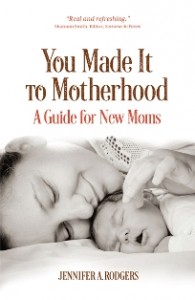 ried. I blamed it on an influx of hormones and exhaustion. My husband looked nervously in the rearview mirror, “Uh…are you okay?” he asked. I assured him that I was fine, but the tears needed to come out. I suppose it was just a release after a very long labor, and the actual realization that this baby was coming home with us, ready or not. Our lives had changed.
ried. I blamed it on an influx of hormones and exhaustion. My husband looked nervously in the rearview mirror, “Uh…are you okay?” he asked. I assured him that I was fine, but the tears needed to come out. I suppose it was just a release after a very long labor, and the actual realization that this baby was coming home with us, ready or not. Our lives had changed. ne. If your children are relatively content in their lives, even with the frequent complaints about life in general, assume that your parenting is up to par. All kids, all people, typically want something they don’t have, so if you child’s biggest complaint is that he wants his own tablet and doesn’t want to share with his brother, then you’re doing fine.
ne. If your children are relatively content in their lives, even with the frequent complaints about life in general, assume that your parenting is up to par. All kids, all people, typically want something they don’t have, so if you child’s biggest complaint is that he wants his own tablet and doesn’t want to share with his brother, then you’re doing fine.
 As I start down this path of publishing and marketing a book, one repeated piece of advice I have read is to define success and what success means to me. The argument is that that most people have no real definition of success, so how can they ever reach it. In the world of writing, it is wanting to be a successful author. What does that mean? Getting on the best seller lists? Making a fortune? Turning books into block buster movies? I have yet to define mine, but I highly doubt that it will be any of those milestones. Selling 20,000 copies would be nice, but I don’t know if my dad can afford to buy that many.
As I start down this path of publishing and marketing a book, one repeated piece of advice I have read is to define success and what success means to me. The argument is that that most people have no real definition of success, so how can they ever reach it. In the world of writing, it is wanting to be a successful author. What does that mean? Getting on the best seller lists? Making a fortune? Turning books into block buster movies? I have yet to define mine, but I highly doubt that it will be any of those milestones. Selling 20,000 copies would be nice, but I don’t know if my dad can afford to buy that many.